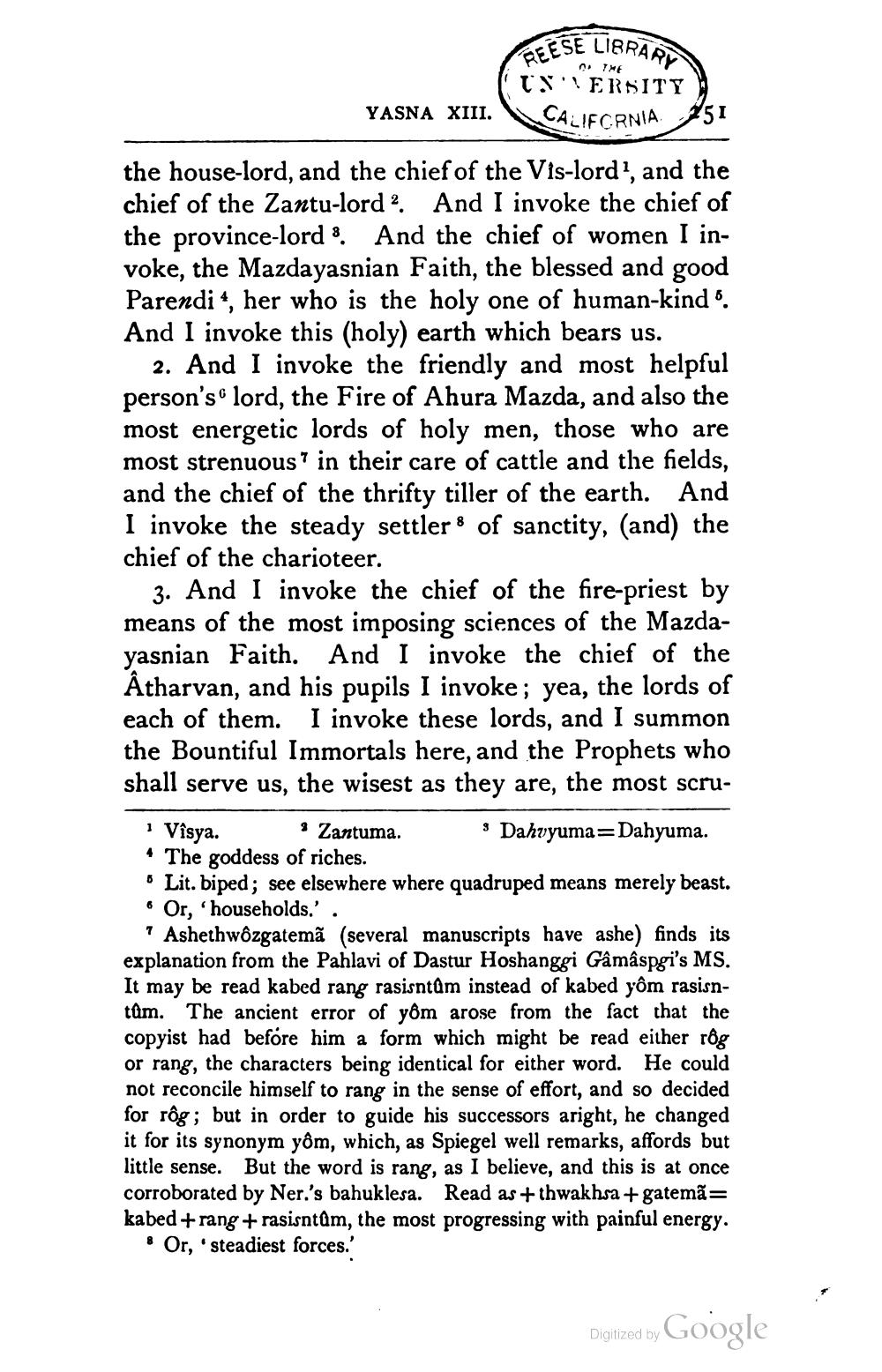________________
REÉSE LIBRARY
(USERSITY YASNA XIII. CAUFCRNIA 251
the house-lord, and the chief of the Vis-lord?, and the chief of the Zantu-lord 2. And I invoke the chief of the province-lord & And the chief of women I invoke, the Mazdayasnian Faith, the blessed and good Parendi 4, her who is the holy one of human-kind. And I invoke this (holy) earth which bears us.
2. And I invoke the friendly and most helpful person's lord, the Fire of Ahura Mazda, and also the most energetic lords of holy men, those who are most strenuous' in their care of cattle and the fields, and the chief of the thrifty tiller of the earth. And I invoke the steady settler 8 of sanctity, (and) the chief of the charioteer.
3. And I invoke the chief of the fire-priest by means of the most imposing sciences of the Mazdayasnian Faith. And I invoke the chief of the Atharvan, and his pupils I invoke; yea, the lords of each of them. I invoke these lords, and I summon the Bountiful Immortals here, and the Prophets who shall serve us, the wisest as they are, the most scrui Vîsya.
• Zantuma. Dahvyuma=Dahyuma. 4 The goddess of riches. • Lit. biped; see elsewhere where quadruped means merely beast. • Or, 'households.' .
? Ashethwözgatemã (several manuscripts have ashe) finds its explanation from the Pahlavi of Dastur Hoshanggi Gâmâspgi's MS. It may be read kabed rang rasisntüm instead of kabed yôm rasisntâm. The ancient error of yom arose from the fact that the copyist had before him a form which might be read either rôg or rang, the characters being identical for either word. He could not reconcile himself to rang in the sense of effort, and so decided for rông ; but in order to guide his successors aright, he changed it for its synonym yôm, which, as Spiegel well remarks, affords but little sense. But the word is rang, as I believe, and this is at once corroborated by Ner.'s bahuklesa. Read as + thwakhsa + gatemã= kabed + rang + rasisntâm, the most progressing with painful energy.
& Or, 'steadiest forces.'
Digitized by Google




